The mighty impact of small businesses
Small businesses have a far bigger impact on our country than most people realize. But just how big? According to the American Council for Technology and Industry Advisory Council, more than 99% of U.S. employers are small businesses, and they generate more than half of the nation’s nonfarm private gross domestic product.
But beyond pure economic impact, small businesses provide an environment where creativity and innovation can flourish and solve problems a bigger company might overlook or not consider important enough. Anybody with the courage and confidence to follow their vision can bring their ideas to life by starting a small business. Along the way, they often create jobs in their communities, spark new ways of doing things, and solve problems in the most surprising ways. We spoke with five winners of the 2022 FedEx® Small Business Grant program—Chasin’ Dreams Farm, Copper River Fish Market, Every Tiny Thing, Niche Snowboards, and True Garden—to hear more about the different ways they’ve made an impact.
Lead the way with innovation



Innovation is essential for small businesses that hope to grow and thrive. It can come in many forms and be applied to any aspect of a business. All that’s required is courage, focus, and hard work. The people behind Niche Snowboards possess all three qualities in abundance. Founded 13 years ago by Kirsten Kolter and Ana Van Pelt, the company set out to develop a new kind of snowboard that was environmentally friendly and zero-waste. At the time, there was nothing else like it on the market. In fact, it was such a radical idea that it took several years for the rest of the industry to finally begin focusing on sustainability too.
“It did take a lot of courage that first year,” says Kirsten. “Ten plus years ago, people didn’t really make the connection. Eco-friendly snowboard? They didn’t really understand why that would have an impact or be important. Fast-forward to now and it seems like everyone is now on that bandwagon to make their manufacturing more sustainable.”
Going from an idea to an actual product wasn’t easy, according to Ana. “The manufacturing stuff, it’s really been a baptism by fire and we’ve really had to become pseudo-engineers. Neither of us have a degree in manufacturing or engineering. I think with passion and interest and drive … you get your hands dirty having to make prototypes yourself and manage people with production and all the technical line planning. We just kind of learn on the go and have a very thorough, in-depth knowledge of all the manufacturing things.”
No fishermen left behind
Copper River Fish Market, a provider of premium-quality wild-caught Alaska seafood to customers across the country, was founded in the remote fishing village of Cordova by Sarah Ecolano. The company takes pride in producing small-batch seafood and going against the grain of the large industrial seafood model that often produces lower-quality products. Its belief in being respectful to the natural environment is why it’s been using sustainable seafood harvesting and production techniques for more than two decades.
They offer this same level of care and concern to veterans of the local fishing community. Most of the local fishermen that they work with are older and the work can be grueling, even for someone younger. So Copper River Fish Market helped introduce a new pricing process based less on bulk and more on individual fish quality. Sarah says, “This is actually allowing the older fishermen to remain competitive and profitable longer because they’re getting more return on each fish instead of having to grind away for a high-volume catch like they did when they were younger.”
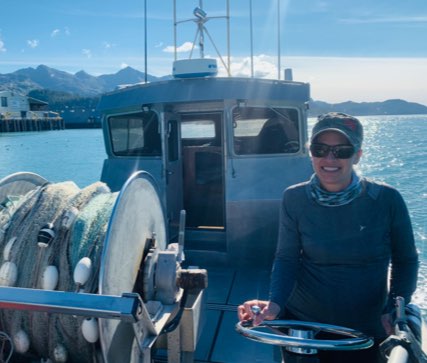


Although Sarah is supportive of the next generation of fishermen having every opportunity to make a living, she says, “We shouldn’t kick out the old guy just because he got tired.”
How caring can take you forward
A key trait many successful entrepreneurs share is a deep and genuine concern for their customers. And that’s what Trish Ringley and her company, Every Tiny Thing, is all about. As a nurse in a neonatal intensive care unit, she’s spent more than two decades providing care to preemies, micropreemies, and full-term babies who need specialized medical care. This work inspired her to create a line of products that would make the experience more comfortable for the babies’ parents. Today, the line includes hospital room decorations, journals, milestone cards, and care packages.
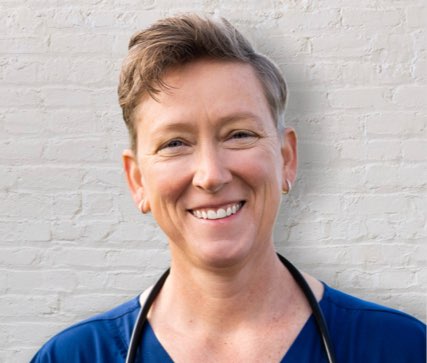


Trish says, “As a small business, we’re able to put forth products that show hospitals what I believe, and what research shows, is the way that we should be treating parents better.” She hopes her company will influence hospitals to provide the additional care and support these families need. “Products like ours should be given to them by the hospital,” Trish adds. In the meantime, Every Tiny Thing is continuing its hospital outreach efforts and its direct-to-consumer sales. The company partners with nonprofit organizations that are able to give the products to parents at the hospitals.
More than meets the eye
Founded by Troy Albright, True Garden is the Mesa-based maker of the premier vertical aeroponic food farm in the Southwestern U.S. The facility can produce crops year-round—even in the intense heat of a desert climate. The company’s cutting-edge technology has helped establish hundreds of urban farms around the country. In addition to its aeroponic equipment, the company sells an array of seeds and gear to enable both commercial and residential customers to grow their own crops anywhere. But Troy strongly believes True Garden is about more than the products it sells. “The little guys can impact the community way more than the big guys, even though we may not have the same resources,” he says. “For example, we work with the city of Phoenix and an organization called Feed Phoenix to help feed the homeless,” Troy adds.
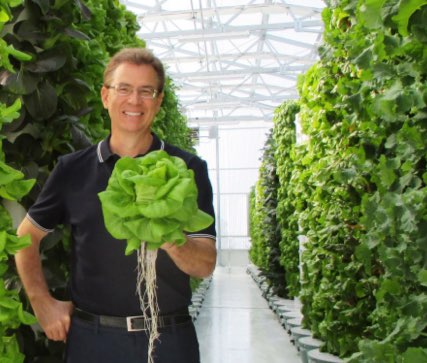


The company also teaches local groups to grow their own food. As a result, Troy sees his role starting to evolve into more of an educator as opposed to a businessman. He says, “It’s about being a part of the community … and part of the food banks and working with different churches here.”
A bit of role reversal
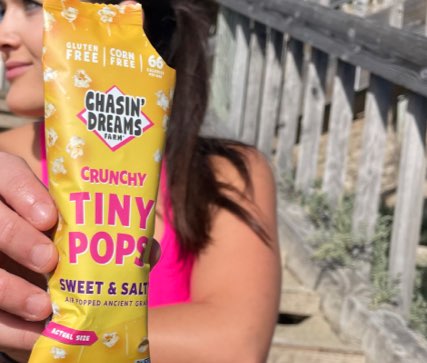


Although she’s the young founder of a relatively small snack food company, Sydney Chasin has been known to teach bigger food corporations a thing or two—something you’d normally assume would work the other way around. Yet when her company, Chasin’ Dreams Farm, participated in a business accelerator program, Sydney says, “All our snack founder friends also have tiny companies and the big food companies are watching. We were part of a snack food accelerator this summer and they’re actually looking to companies like us to learn more about operations, sustainability, and many other things.”
And this probably isn’t the last time a larger company will look to Sydney’s company for insight. She says, “The change in bigger companies actually comes from small companies like us.” That’s because companies the size of Chasin’ Dreams Farm are far more agile and better positioned to take risks than their larger counterparts.
The feeling is mutual
Although the positive impact small businesses make on their communities is clear, the local communities also make a positive impact on the businesses. Sarah, of Copper River Fish Market, experienced it during the 2022 FedEx Small Business Grant program: “It was cool. They were letting me know when they would vote and they would tell all their friends to vote. So it felt really supportive.”
The experience Chasin’ Dreams Farm had was equally positive. As Sydney puts it, “I kind of forgot how many cheerleaders we have and how many people are there to support us. We don’t typically get to see how many people have been watching our journey. It was cool because it gave our community an opportunity to support us in a way that didn’t cost them anything.”
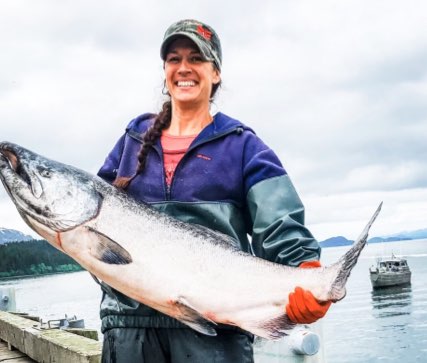


Keep dreaming and doing. There’s more ahead.
Keep dreaming and doing. There’s more ahead.
The FedEx Small Business Grants Program helped entrepreneurs grow for 12 years. It’s retiring,
but our support for small businesses isn’t. Find other ways to compete and win.
The FedEx Small Business Grants Program helped entrepreneurs grow for 12 years. It’s retiring, but our support for small businesses isn’t. Find other ways to compete and win.
Training and grant opportunities
Shipping savings and rewards
Peer and expert insights
Inspiration from past recipients
Training and grant opportunities
Shipping savings and rewards
Peer and expert insights
Inspiration from past recipients
Related reading
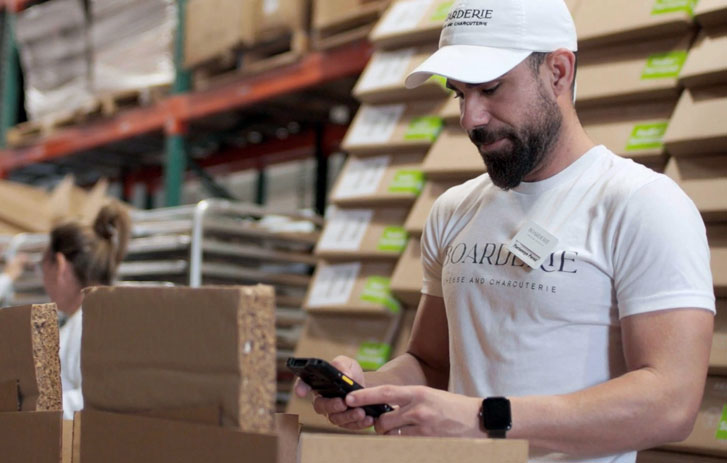
Boarderie’s recipe for success
Learn how Boarderie used e-commerce during the pandemic, partnering with FedEx to deliver fresh, artisanal cheese and charcuterie boards nationwide.
Read Article
Meet the 2017 winners
Read the inspiring stories of the companies that won the 2017 FedEx Small Business Grant (a legacy program) program.
Read article
Meet the 2018 winners
Discover the winners of the FedEx Small Business Grant program, (a legacy program) their products, and the inspiring stories behind their businesses.
Read article